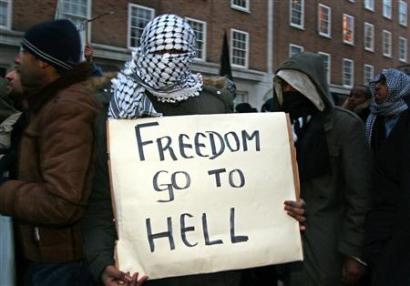UK foreign policy did contribute to terror, but not in the way Corbyn implies.
After both the Manchester and London Bridge terror attacks, party political campaigning was briefly suspended. However, Islamic terrorism has inevitably become an important issue in this general election and, rather ironically, Jeremy Corbyn is on the offensive, criticising Theresa May and the Conservatives for imposing cuts on the police that put public safety at risk.
This is not a subject on which the Labour leader has much credibility. Not only has he a long record of sympathising with terrorist causes, he and his associates have also actively opposed many of the security agencies that are charged with keeping us safe. The blogger Guido Fawkes points out that, just three years ago, Corbyn defended the idea that young British people who had fought for ISIS in Syria should be allowed to return to the UK without “legal obstacles”.
The Labour leader also argues that British foreign policy, including military involvement in Afghanistan, Iraq, Libya and Syria, has helped fuel Islamist terror. That is a more complicated point that can’t be dismissed by reference to Corbyn’s character and should be broken down a little.
Clearly Islamic extremism in the UK or elsewhere is not simply a reaction to western countries’ role in wars abroad. The history of Islamism as an ideology is long and complicated. Its modern prevalence has been explained with reference to Saudi money and the export of ‘Wahhabism’ or the more nakedly political doctrines of ‘Salafism’.
Acts of Islamist terror are not restricted to countries whose military has become involved in Muslim countries. While some attackers have listed among their motivations perceived ‘wars on Islam’ by the west, Islamic terrorism seems to draw at least as much on religious hatred for western society and a kind of nihilistic youth cult that glorifies extreme violence.
Yet British foreign policy has undeniably contributed to creating chaos in parts of the Middle East and North Africa, where a political vacuum has allowed Islamists to carve out territory, from which they can spread their propaganda and train recruits. In Iraq, Libya and Syria, the UK has been among the most enthusiastic proponents of ‘regime change’, demanding that admittedly unpleasant, but secular and stable, governments should be dislodged.
It was always foreseeable that the alternative to authoritarian regimes was increased influence for Islamists. That was clear even as western leaders urged on protesters during the “Arab Spring”. In 2011, I wrote about the situation in Egypt, where the Muslim Brotherhood was soon to take control. The army later reasserted its power, but the country remains restive and dangerous.
“Nobody would describe President Mubarak as a democrat, but he has kept a sprawling and potentially volatile country stable and shown diplomacy dealing with some fairly touchy neighbours in the wider region. The people of Egypt are entitled to challenge his regime - they certainly aren’t at liberty to vote it out of office - but we can’t be blind to the fact that a virulent strain of populist Islamism is eager to fill any political vacuum.
That pattern is replicated across much of North Africa and the Middle East, which is not to say that protesters shouldn’t press for democracy where it is denied.
It’s right to be wary about the outcome of events though. For governments in the west and their allies in the Arab world, there is some truth in the maxim ‘better the devil you know’. They can’t afford to disregard broader geo-political issues or throw caution to the wind by cheerleading revolution.”
Subsequently, the UK was involved in toppling Colonel Gaddafi in Libya, with the result that there is still a civil war in the country. Reportedly, the Manchester bomber, Salman Abedi, would visit in the school holidays to take part in the fighting. It’s difficult to envisage how these formative experiences cannot have played some role in his decision to kill concert-goers in his adopted city.
The conflict in Syria has become the greatest geopolitical quagmire in the Middle East. While the UK military’s involvement has been limited, Britain provided political backing to the US and ‘aid’ to rebel groups that oppose the government of President Bashar al-Assad.
Some of the support that western countries have provided rebels in Syria has assisted directly various types of Islamists, including affiliates of Al-Qaeda, while there is evidence that ISIS has been an indirect beneficiary of attacks on al-Assad, as well as ‘lethal’ and ‘non-lethal’ aid.
These circumstances mean that Corbyn is right to draw a link between UK foreign policy and the conditions that allow terrorism to flourish, but the tone and content of his arguments are flawed.
Rather than insinuating that western leaders made young Muslim people justifiably angry, with the result that terrorist atrocities were perpetrated in Britain, we should be asking why our leaders didn’t much earlier identify Islamism as the primary threat to people’s safety at home and in the Middle East.
Rather than insinuating that western leaders made young Muslim people justifiably angry, with the result that terrorist atrocities were perpetrated in Britain, we should be asking why our leaders didn’t much earlier identify Islamism as the primary threat to people’s safety at home and in the Middle East.
Why, long after barbarism like 9/11 and 7/7, did the US, the UK and others still pursue policies that benefited people like the Muslim Brotherhood, Al Qaeda and then ISIS?

Comments